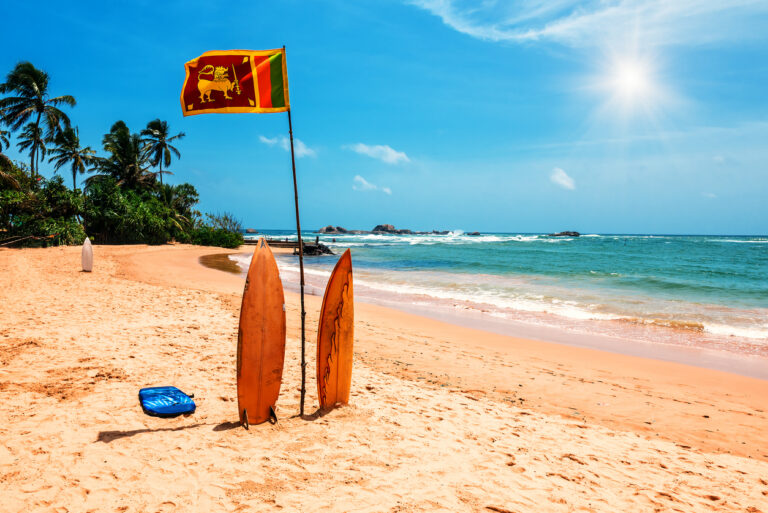Sri Lanka is the latest country to create a visa especially for digital nomads and remote workers.
On July 12, the island country’s government approved a measure that grants one-year visas to digital professionals from around the world.
“Sri Lanka is positioned well to promote the ‘work from your own tropical paradise’ concept, and Sri Lanka Tourism recognizing this is facilitating the expansion of the digital nomad market as part of its sustainable strategies,” said a statement from the Sri Lanka government.
The statement also said that digital nomads are not “sensitive to seasonal travel,” making them an ideal population to “boost off-season tourism.” It further noted that the “digital content generated by this segment” would organically promote the country’s tourism industry.
The new visa program is expected to position Sri Lanka as a top destination for digital nomads, a group that has been rapidly growing due to the COVID-19 pandemic.

According to the government, other factors that could attract foreign remote workers to the area include the availability of high-speed internet connections at local hotels, restaurants and libraries, affordable accommodation and income tax exemptions.
“By attracting digital tourists to Sri Lanka and providing them with the facilities they need to stay longer, the country will be able to earn more foreign exchange,” said the government.
In addition to the visa, the government also proposed that the Sri Lanka Tourism Promotion Bureau launch an advertising campaign aimed at digital nomads.
“After experiencing prolonged lockdowns and travel restrictions, people are embracing the ‘work from anywhere’ concept, with the requirements being a picturesque setting, cultural experiences, adventure and good wifi connection,” said Sri Lanka Tourism Chairperson Kimarli Fernando said.
Multiple countries and cities have recently announced digital nomad visas in an effort to lure in foreign remote workers, including Curacao, Dubai, Estonia, Greece and Spain.
Digital nomads tend to have more disposable income than other tourist populations, and long-term visitors inject more cash into local economies than short-term vacationers.
As a result, many destinations are banking on digital nomads and other types of remote workers to help them financially recover from the pandemic.

